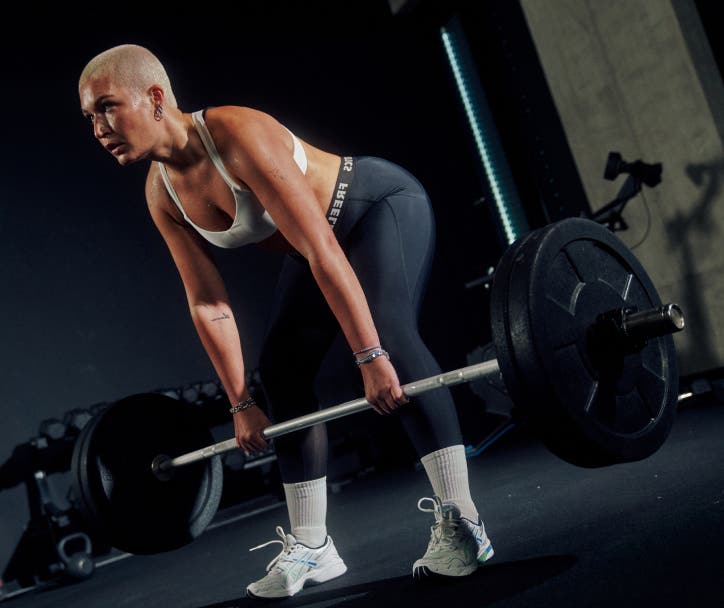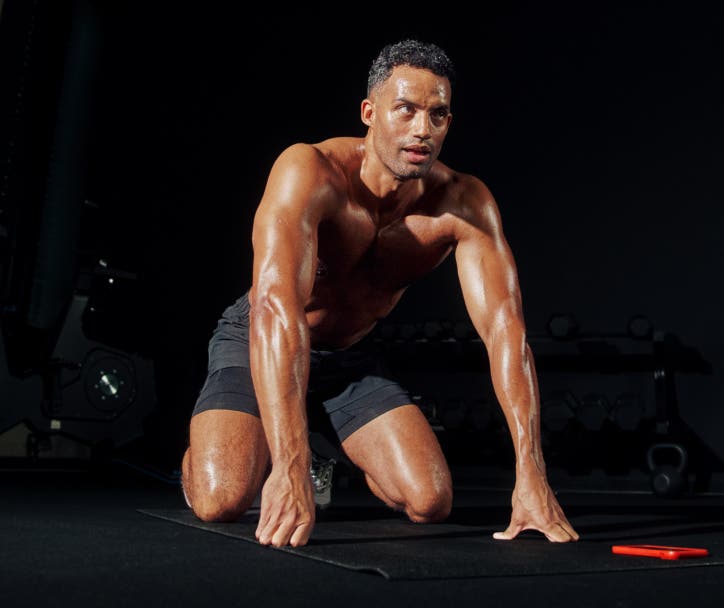Self-confidence plays a crucial role in many areas of life, especially sports and fitness. It allows athletes to unleash their full potential by reducing fears and self-doubt, empowering them to focus solely on their performance. It builds mental resilience, bolstering the ability to navigate setbacks and bounce back from failures.
But what exactly is self-confidence? Let’s dive in.
What is self-confidence?
You know that unwavering belief in yourself that you can conquer any challenge and achieve your goals. A belief that recognizes your strengths, experiences, and successes and motivates you to strengthen your self-efficacy – that’s self-confidence.
But self-confidence is more than just an attitude; it's a life-altering force that influences your behavior, emotions, and self-image across every aspect of life, whether it's your career, sports, or relationships.

The science behind self-confidence
Self-confidence is a complex concept, with several areas of the brain playing a crucial role in its formation and maintenance.
The prefrontal cortex is a key area associated with self-confidence. This region is involved in self-awareness, evaluating rewards, and regulating emotions. When we reflect on ourselves or make decisions, the prefrontal cortex is active.
The limbic system, particularly the hippocampus and amygdala, also plays an important role in self-confidence. These areas are associated with emotions, memories, and processing social information. They help shape our identity and understand our relationships with others.
Additionally, neurotransmitters like dopamine, serotonin, and norepinephrine influence self-confidence. These chemicals are involved in regulating mood, reward, and motivation. An imbalance in these neurotransmitters can affect self-confidence and lead to mood disorders such as depression or anxiety.
The connection between self-confidence and athletic performance
In the world of sports, self-confidence is everything. And it shows up in a multitude of ways.
Self-confidence can influence your motivation to train consistently and pursue your fitness goals. Those with strong self-confidence firmly believe in their ability to succeed, so they put in the effort to perform at their best.
Self-confidence also manifests in how you approach your training. People with high self-confidence tackle new challenges head-on and push themselves harder in training. They doubt their abilities less, making them more willing to try new exercises and intensify their workouts.
Self-confidence affects how well movements are performed. People who trust themselves have better body awareness and can execute movements more precisely, leading to more effective training sessions and reducing the risk of injury.
Finally, self-confidence also plays a key role in navigating setbacks and bouncing back from failures. People with strong self-confidence aren't easily deterred by failures; they embrace them as lessons and keep moving forward. Challenges are viewed as an opportunity to grow, motivating them to give their best even in the face of adversity.

The benefits of boosting self-confidence in fitness
- Enhanced motivation and endurance: People with strong self-confidence are more motivated to train regularly and chase their goals simply because they believe they can.
- Improved performance and results: By building self-confidence, you’re more likely to boost your performance and reach your goals more effectively, as doubts and fears no longer hold you back.
- Increased well-being: A boost in self-confidence can lead to a positive self-image and improved overall well-being. As you take pride in your progress, you feel physically and mentally stronger.
- More effective stress management: Stronger self-confidence will aid in stress management and help build resilience. It’ll help you to reframe challenges as growth opportunities and to remain calm in tough situations.
- Enhanced body awareness and self-acceptance: Strengthened self-confidence has ripple effects – leading to a more positive body image and a greater level of self-acceptance.
How do I build self-confidence?
- Set SMART goals: Break down your goals into small, achievable milestones to create regular successes and strengthen your self-confidence. Set "SMART" goals (Specific, Measurable, Achievable, Relevant, Time-bound)
- Visualize your success: Vividly imagine yourself achieving your fitness goals and how your life positively changes as a result. By mentally preparing for your success, you boost your self-confidence and motivation.
- Celebrate your success: Celebrate and acknowledge your progress, no matter how small. Every step towards your goals is a reason to celebrate and further boosts your self-confidence. Regularly documenting your journey and progress helps you stay resilient in the face of setbacks.
- Engage in positive self-talk: Speak to yourself in a positive and encouraging manner. Replace negative thoughts with positive affirmations and remind yourself that you are capable and strong.
- Create a supportive environment: Surround yourself with people who support and encourage you. Together, you can motivate each other and strengthen belief in your abilities.

Let’s recap
Boosting your physical performance starts by nurturing your inner confidence. In fitness, self-confidence not only amps up motivation, endurance, and performance but also sharpens your movement precision and stress management. And it doesn’t need to be complicated.
Practical tactics such as setting realistic goals, visualization, self-celebration, and surrounding yourself with supportive environments all help build self-confidence. Ultimately, it’ll lead to better results, more effective stress coping, and greater self-acceptance – which is truly the best “win” in our books.